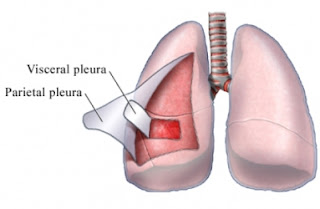Upper respiratory tract infection (URTI) refers to infection of the upper airway, which include the nose, sinus, throat (pharynx), vocal cord area (larynx) and trachea. It causes symptoms such as running nose, cough, sore throat, fever etc. Generally speaking, it is caused by either virus or bacteria. Viral URTI is self-limiting, or in another words, can cure by itself without specific treatment. Bacterial URTI, most common by streptococcus, requires antibiotic treatment to prevent very rare but serious complication which can affect the heart and kidneys.

Can a doctor differentiate between a viral and bacterial URTI? It’s important to do so but it’s difficult because the signs and symptoms they produce often overlap each other. When a doctor sees a patient with URTI symptoms, streptococcus bacteria infection and pneumonia (lungs infection) are what he/she wants to rule out. What are the clues doctors look for? Streptococcus bacteria URTI affect the throat (pharyngitis), more commonly in children age 5-15 years old, so the main symptom is sore throat. As the nose and larynx are not involved, usually there are no running nose and cough. Some people may think that thick greenish phlegm suggests bacteria infection but this is not true. Even virus infection can produce yellow or green phlegm.
Doctors will check your temperature, as streptococcal URTI usually causes high grade fever (>38.5 C). However, please bear in mind that some viral infection can cause high fever as well. Then doctors will look at your throat to see whether the tonsils are inflamed or enlarged. Both virus and bacteria can cause enlarged tonsils but when there are exudates (white patches) on the tonsils, it makes bacteria infection more likely. Doctors will also look for skin rash and palpate your neck to feel for enlarged lymph nodes. Lastly, doctors will use a stethoscope to listen to your lungs to make sure that your lungs are not involved. In summary, you probably need antibiotic if you have high fever with sore throat, little or no cough nor running nose, has inflamed throat/tonsils with exudates and enlarged neck lymph nodes >1cm.
Tonsils with exudates
Virus URTI does not require anti-viral unless in some special situation like new strain AH1N1. Of course antibiotic has no effect in any viral infection. So, if you do not fit into the scenario of streptococcus bacteria infection as described above, then most probably you do not need to worry much. There are hundreds of different viruses which can cause URTI. Common cold, which produces mainly nose symptoms (running nose, nose congestion/block, sneezing), watery eyes, sometimes sore throat and mild cough, is caused by virus. Adults with common cold usually do not even have any fever. Influenza (flu), which is also a virus infection, makes you extremely tired with pain all over the body besides giving you high fever, cough & some stuffy nose. When getting flu, you may think that you are having a serious infection, but actually you don't need antibiotic at all.
No matter what virus it is, it is not so important because the treatment is the same – rest and plenty of fluids. Doctors may give some medicine to relieve the fever, stuffy nose, cough and sore throat. However, you are not going to shorten the duration of the infection by taking these medicines. Viral URTI can last for 3-14 days. The average I would say is 7 days. Usually the symptoms will get better after 3 days. If the symptoms last more than 2 weeks or get progressively worse, the diagnosis of simple viral URTI need to be revised. This situation can be caused by bacteria superinfection, in which bacteria infects the part initially infected by a virus. As a rule of thumb, only about 10% of URTI are caused by bacteria. So, next time when you have fever, runny nose, cough, sore throat etc, give at least 7 days to your body immune system to work and don’t always ask for antibiotics. Antibiotics have side effects, they kill your friendly bacteria and contribute to produce antibiotics-resistant superbugs.
When you actually have a bacteria URTI, will you get better without antibiotic? Yes, you can. Your body immune system will eventually beat the invading bacteria, but it may take longer time. Children with untreated streptococcus URTI have a very small but significant risk of getting complication after the URTI has cured, such as rheumatic fever and glomerulonephritis. Do you need to see a doctor for URTI symptoms? Well, if you are worry, then just go and see one.



